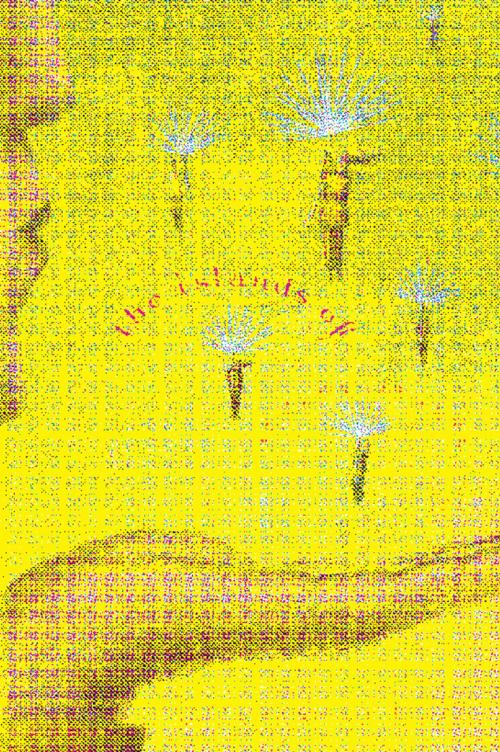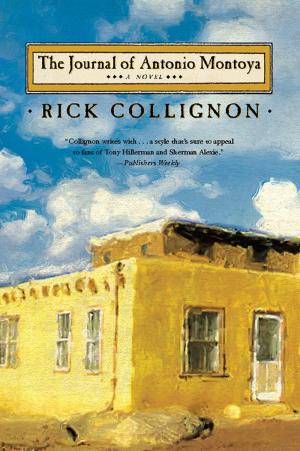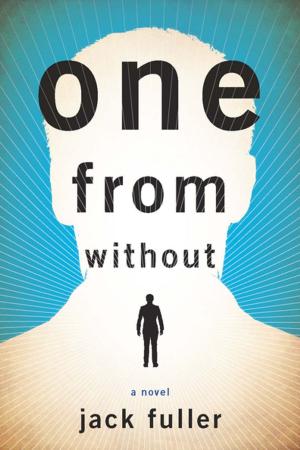| Author: | John Addiego | ISBN: | 9781936071258 |
| Publisher: | Unbridled Books | Publication: | October 1, 2008 |
| Imprint: | Unbridled Books | Language: | English |
| Author: | John Addiego |
| ISBN: | 9781936071258 |
| Publisher: | Unbridled Books |
| Publication: | October 1, 2008 |
| Imprint: | Unbridled Books |
| Language: | English |
The Islands of Divine Music is a novel of five generations of an Italian-American family finding its place in the New World. Against a backdrop of Immigration, Prohibition, the Cuban Missile Crisis, the Vietnam War, and the new millennium, five generations of the Verbicaro family make their way from Southern Italy to San Francisco as each character brushes up against some aspect of the divine.
The family matriarch is Rosari, a little girl whose family flees Italy because her prodigality is exploited by illiterate kidnappers. After her beautiful, psychotic mother’s suicide, the girl and her despondent father come to San Francisco, where she meets the man she’ll marry, a handsome, fiercely strong peasant named Giuseppe Verbicaro. The twelve linked stories of The Islands of Divine Music are portraits of family members whose lives are interwoven in one narrative that spans 100 years.
Rosari and Giuseppe’s oldest son, Narciso, a handsome and dim-witted dandy, barely evades death and the stain of organized crime by his simple-minded innocence and luck, while his passionate brother Ludovico, a talented third baseman in the old San Francisco minor leagues, falls prey to the illicit dreams of a wise guy from the Gambino family. His scheme to smuggle Cuban cigars to the San Francisco Bay nearly ends in drowning but leads to a kind of salvation.
Their youngest brother, Joe, a brilliant child and shrewd businessman, is ashamed of his ethnicity and, in particular, his father. This is due in part to the fact that Giuseppe, wandering North Beach, believes that God directs him to marry a teen-aged, pregnant Mexican prostitute named Maria. Further senility, faith, or vermouth convinces the old man that Maria’s child, Jesus, is the product of an immaculate conception. The event is both a family disgrace and a bizarre blessing. The child’s life and tragic death come to have a profound effect on Giuseppe’s progeny, particularly Joe’s children: Penelope, who flees the country following involvement in deadly anti-Vietnam War activities, and her brothers Paulie and Angelo, who are inspired by the young Jesus to embark upon a quest of several thousand miles to recover the family’s lost and most prized spiritual treasures.
The family matriarch is Rosari, a little girl whose family flees Italy because her prodigality is exploited by illiterate kidnappers. After her beautiful, psychotic mother’s suicide, the girl and her despondent father come to San Francisco, where she meets the man she’ll marry, a handsome, fiercely strong peasant named Giuseppe Verbicaro. The twelve linked stories of The Islands of Divine Music are portraits of family members whose lives are interwoven in one narrative that spans 100 years.
Rosari and Giuseppe’s oldest son, Narciso, a handsome and dim-witted dandy, barely evades death and the stain of organized crime by his simple-minded innocence and luck, while his passionate brother Ludovico, a talented third baseman in the old San Francisco minor leagues, falls prey to the illicit dreams of a wise guy from the Gambino family. His scheme to smuggle Cuban cigars to the San Francisco Bay nearly ends in drowning but leads to a kind of salvation.
Their youngest brother, Joe, a brilliant child and shrewd businessman, is ashamed of his ethnicity and, in particular, his father. This is due in part to the fact that Giuseppe, wandering North Beach, believes that God directs him to marry a teen-aged, pregnant Mexican prostitute named Maria. Further senility, faith, or vermouth convinces the old man that Maria’s child, Jesus, is the product of an immaculate conception. The event is both a family disgrace and a bizarre blessing. The child’s life and tragic death come to have a profound effect on Giuseppe’s progeny, particularly Joe’s children: Penelope, who flees the country following involvement in deadly anti-Vietnam War activities, and her brothers Paulie and Angelo, who are inspired by the young Jesus to embark upon a quest of several thousand miles to recover the family’s lost and most prized spiritual treasures.
The Islands of Divine Music is a novel of five generations of an Italian-American family finding its place in the New World. Against a backdrop of Immigration, Prohibition, the Cuban Missile Crisis, the Vietnam War, and the new millennium, five generations of the Verbicaro family make their way from Southern Italy to San Francisco as each character brushes up against some aspect of the divine.
The family matriarch is Rosari, a little girl whose family flees Italy because her prodigality is exploited by illiterate kidnappers. After her beautiful, psychotic mother’s suicide, the girl and her despondent father come to San Francisco, where she meets the man she’ll marry, a handsome, fiercely strong peasant named Giuseppe Verbicaro. The twelve linked stories of The Islands of Divine Music are portraits of family members whose lives are interwoven in one narrative that spans 100 years.
Rosari and Giuseppe’s oldest son, Narciso, a handsome and dim-witted dandy, barely evades death and the stain of organized crime by his simple-minded innocence and luck, while his passionate brother Ludovico, a talented third baseman in the old San Francisco minor leagues, falls prey to the illicit dreams of a wise guy from the Gambino family. His scheme to smuggle Cuban cigars to the San Francisco Bay nearly ends in drowning but leads to a kind of salvation.
Their youngest brother, Joe, a brilliant child and shrewd businessman, is ashamed of his ethnicity and, in particular, his father. This is due in part to the fact that Giuseppe, wandering North Beach, believes that God directs him to marry a teen-aged, pregnant Mexican prostitute named Maria. Further senility, faith, or vermouth convinces the old man that Maria’s child, Jesus, is the product of an immaculate conception. The event is both a family disgrace and a bizarre blessing. The child’s life and tragic death come to have a profound effect on Giuseppe’s progeny, particularly Joe’s children: Penelope, who flees the country following involvement in deadly anti-Vietnam War activities, and her brothers Paulie and Angelo, who are inspired by the young Jesus to embark upon a quest of several thousand miles to recover the family’s lost and most prized spiritual treasures.
The family matriarch is Rosari, a little girl whose family flees Italy because her prodigality is exploited by illiterate kidnappers. After her beautiful, psychotic mother’s suicide, the girl and her despondent father come to San Francisco, where she meets the man she’ll marry, a handsome, fiercely strong peasant named Giuseppe Verbicaro. The twelve linked stories of The Islands of Divine Music are portraits of family members whose lives are interwoven in one narrative that spans 100 years.
Rosari and Giuseppe’s oldest son, Narciso, a handsome and dim-witted dandy, barely evades death and the stain of organized crime by his simple-minded innocence and luck, while his passionate brother Ludovico, a talented third baseman in the old San Francisco minor leagues, falls prey to the illicit dreams of a wise guy from the Gambino family. His scheme to smuggle Cuban cigars to the San Francisco Bay nearly ends in drowning but leads to a kind of salvation.
Their youngest brother, Joe, a brilliant child and shrewd businessman, is ashamed of his ethnicity and, in particular, his father. This is due in part to the fact that Giuseppe, wandering North Beach, believes that God directs him to marry a teen-aged, pregnant Mexican prostitute named Maria. Further senility, faith, or vermouth convinces the old man that Maria’s child, Jesus, is the product of an immaculate conception. The event is both a family disgrace and a bizarre blessing. The child’s life and tragic death come to have a profound effect on Giuseppe’s progeny, particularly Joe’s children: Penelope, who flees the country following involvement in deadly anti-Vietnam War activities, and her brothers Paulie and Angelo, who are inspired by the young Jesus to embark upon a quest of several thousand miles to recover the family’s lost and most prized spiritual treasures.















